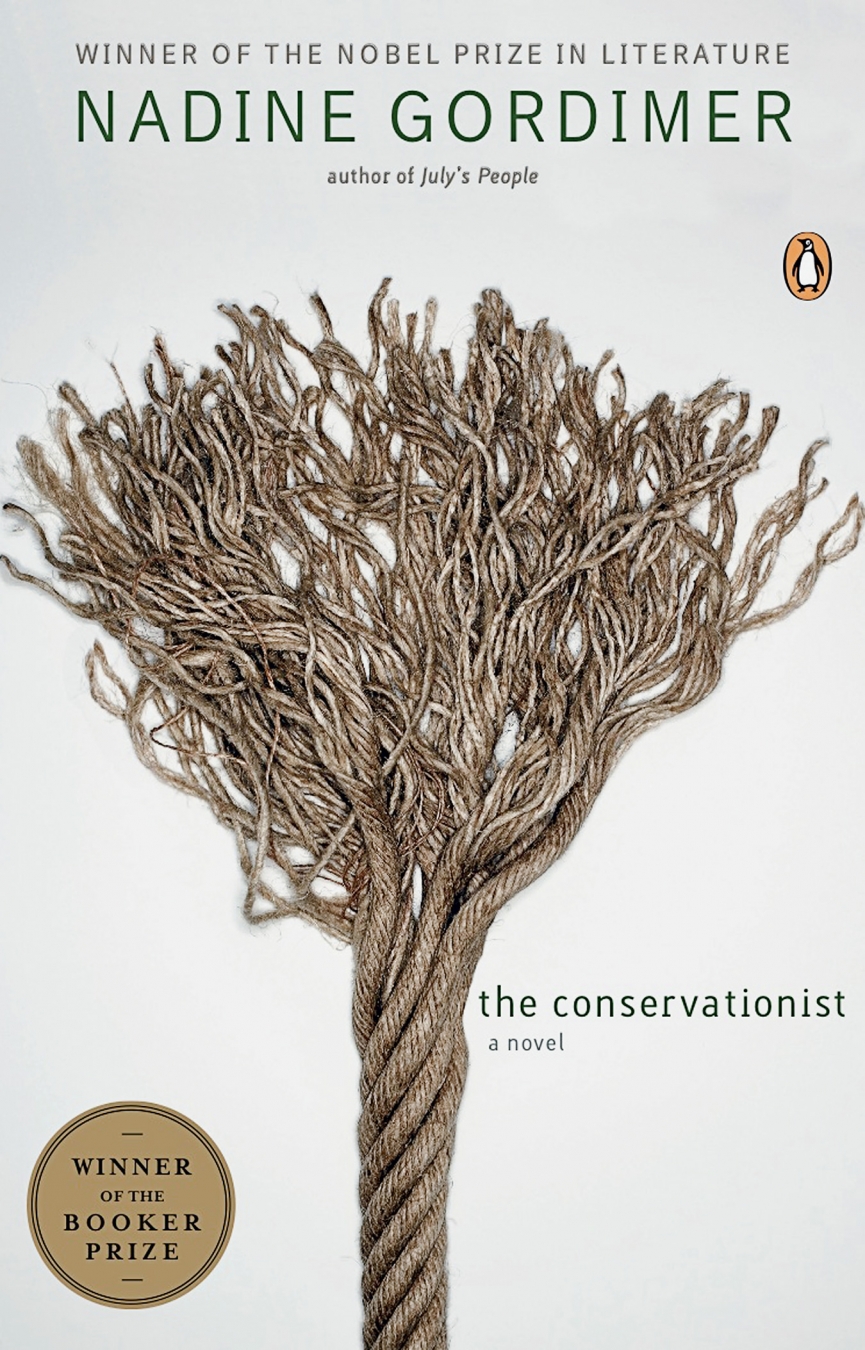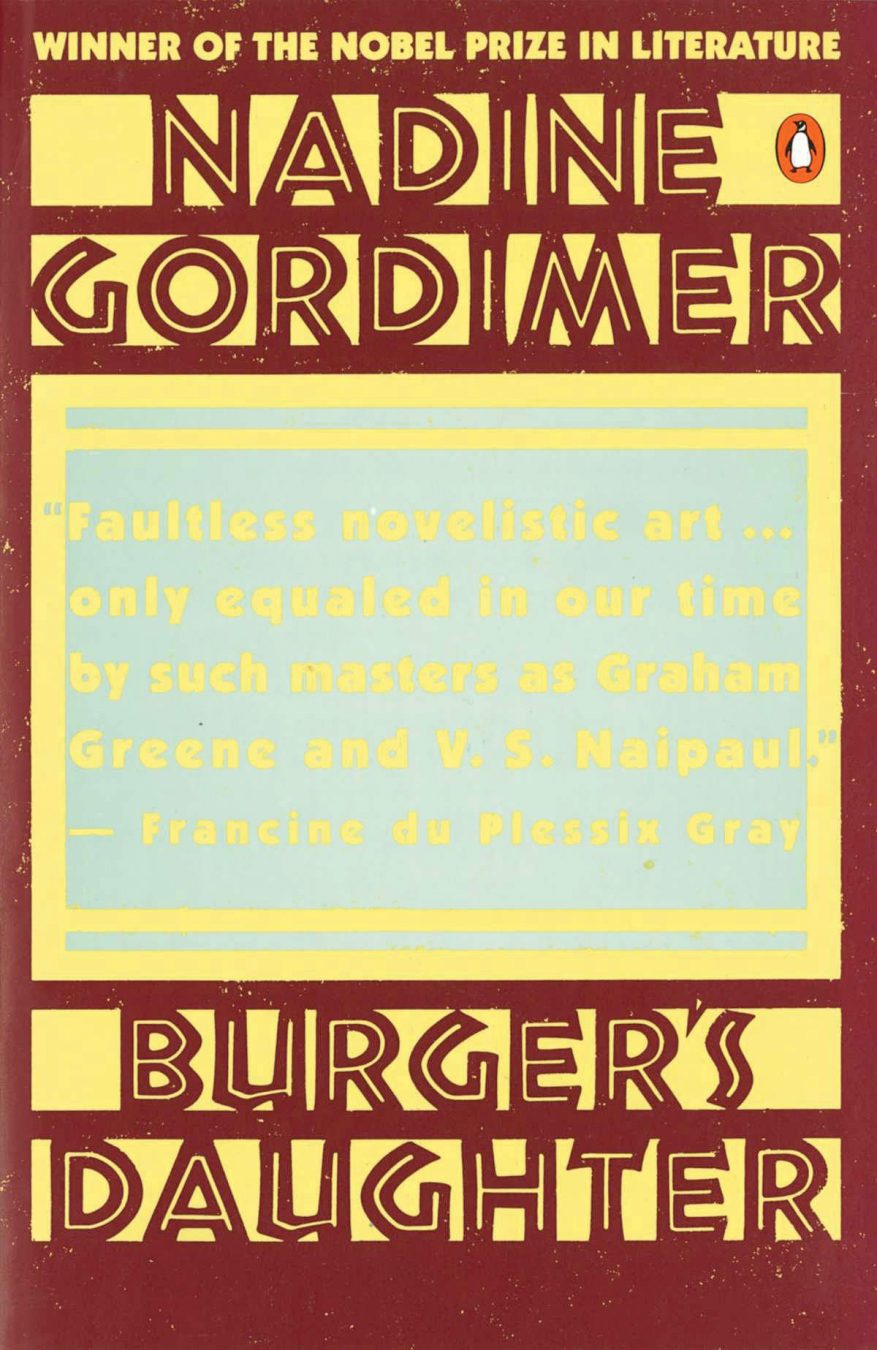The tension between the desires of the self and the demands of society is one of the perennial concerns of literature. This is especially the case in a culturally, politically, and morally fraught society like South Africa, formerly racist and repressive, but still troubled under the now democratic rule of Nelson Mandela’s African National Congress (ANC). South African writer Nadine Gordimer died last July, at age 90. A long time anti-Apartheid activist, Mandela advocate, and ANC supporter, she has been a powerful and influential presence in both political and literary realms. With 15 novels, over 200 short stories, and scores of essays, she has earned attention, not just kudos—in 1991, she became the seventh woman and the first South African writer to win the Nobel Prize for literature—but surveillance and censorship as well.
Works such as The Conservationist (1974), Burger’s Daughter (1979), and her last novel, No Time Like the Present (2012), bear witness to South African society over the last several decades. Mehring, the smug, complacent, privileged white protagonist of The Conservationist, in whose consciousness the reader is uneasily situated, is more committed to development and corporate profits than to what he considers aery abstractions like equality and justice. A dealer in pig iron, he is a pragmatic materialist for whom divorced wife, estranged son, compliant mistress, and exploited black workers are merely material objects, no different from—but probably less valuable—than his Mercedes. Mehring has a romanticized notion of nature and has acquired a hobby farm as an escape from city life, but an unexplained murder of an anonymous black man on his property and the expedient burial of the corpse on site by the local police provides a potent metaphor for the deep fault line of South African life, and its eventual dislodging in a storm presages Mehring’s own disintegration.
Unlike Mehring, Rosa Burger, the protagonist of Burger’s Daughter, struggles to disentangle a self from the structures of identity she inherits, both familial and social. The daughter of Communist parents committed to revolutionary social change, she is conscripted into their world of secrecy and subterfuge, and of constant surveillance by the authorities with possible arrest, torture, and death at any time. Here, Gordimer shifts between first and third-person narration, self as subject and self as object, fitting in a society where the “gaze” is a ubiquitous means of monitoring and control. But also fitting is that Rosa’s first-person accounts are addressed to an implied audience usually referred to simply as you, important here, partly as a way to reclaim the “other” as a legitimate subject in its own right rather than a demonized threat or a utilitarian object, and partly as a means of escaping a “closed circuit of self”.
Rosa begins the novel as a young girl on the verge of womanhood, waiting outside a prison to smuggle a message to one of her parent’s colleagues inside, and ends the novel as a prisoner herself, after a brief term outside the country, experiencing life free of political entanglements. But some epiphanies of suffering—the inevitable attritions of aging and mortality versus the avoidable brutalities of human injustice—send her home.
The option of escape, of fleeing the restrictions of South Africa, are constant temptations for Gordimer’s characters, and No Time Like the Present charts the challenges and moral ambiguities of the contemporary scene, democratic but riven by inequalities, corruption, and ethnic resentments. The main characters are a racially-mixed couple, once an illegal union, a white man, a university professor, and a Zulu woman, smuggled out of the country as a child to get an education, now a lawyer. Both revolutionaries, they met and married in neighbouring Swaziland, but now they are also parents and middle-class home owners who want only the best for their children. They are contemplating the betrayal of The Struggle by the Aftermath; one result is they are considering emigration to Australia.
The Publications Control Board eventually banned Burger’s Daughter in South Africa, and in reply, Gordimer addressed its concern that “the treatment of the theme [was] undesirable” in an essay called “What the Book is About”: “Through the personage of Rosa Burger, the question is posed and explored: What is a meaningful life? . . . Can one fulfill oneself simply by earning a living, falling in love, marrying, and producing the next generation . . .? Conversely, can one fulfill oneself while sacrificing personal emotional preoccupations, ambitions, joys, and sorrows—what is generally accepted as the pursuit of happiness—to the selflessness exacted by faith in a cause greater than oneself? This conflict is central to civilized man’s existence.” Few contemporary writers have posed these questions with such immediacy and force.











